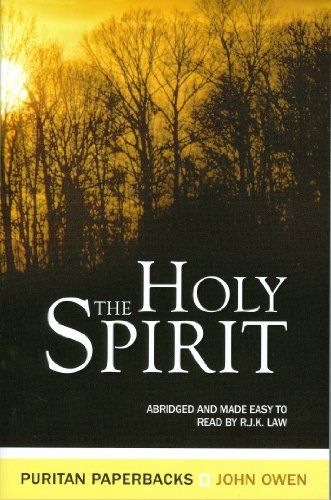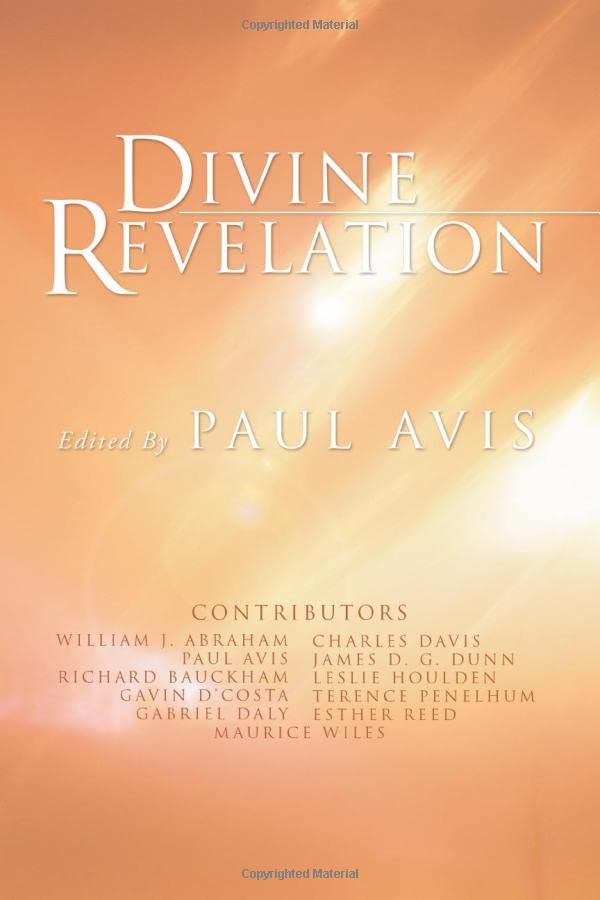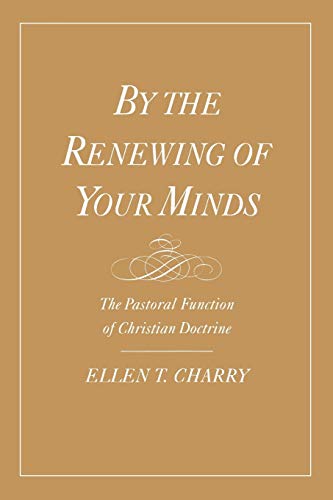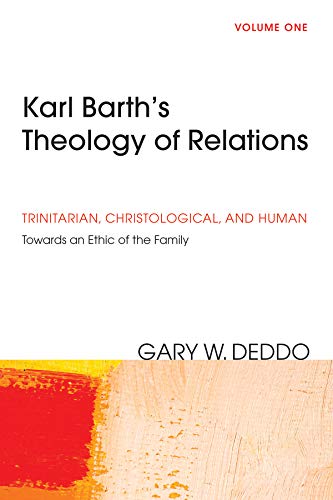Volume 25 - Issue 3
Some Advantages of Going Dutch
By Carl TruemanFor the last few years, I have made a point of visiting the Netherlands at least once a year. There is, I believe, something singularly delightful about sitting outside a Dutch cafe in Utrecht or Delft on a warm June day, drinking cold Dutch beer, watching the boats on the canals, and talking with Dutch friends. Holland may never have produced the director of a decent Western, but, if the highest form of art has proved beyond the reach of the most civilised nation on earth, then Rembrandt, Vermeer, and Van Gogh are certainly very useful as consolation prizes.
My love affair with Holland, however, predates my drinking of La Trappe and my strolls along the canals in old Utrecht. The Dutch, after all, saved me from a fate worse than death. As a convert to Christianity from a non-Christian home, my early Christian life was marked more by zeal than by knowledge—and, as Calvin says somewhere, zeal without knowledge is like a sword in the hand of a lunatic. As a result, I confess that my student days were marked more by feats of theological mortal combat with opponents (real and, I suspect, more often imagined) than with any proper attempt to grapple with the deep things of theology and their relationship to my everyday life. The result, of course, was disaster: enduring extended unemployment and living without regular access to church fellowship in the early nineties, I found my faith reduced to a mere trace element in my life; and, studying, then working, within the secular university system, I stood helpless as the intellectual foundations of my thinking (if such knee-jerk conservatism can be dignified with the word) were shaken to pieces.
Yet the Lord is gracious. From about 1995 onwards, my life and faith underwent radical reconstruction, from the bottom up. Many factors contributed—friends, family, church—but, on the intellectual level, nothing was as significant as my re-reading of the various Dutch theologians on my bookshelves.
I had first discovered the Dutch theological tradition as a postgraduate, when reading G.C. Berkouwer (1903–1996) saved me from losing my evangelical faith in the atmosphere of a university where Barthianism was the only systematic theology on offer. Returning years later to Berkouwer, I was impressed by three things: his persistent desire to stand within the tradition of Reformed theology to which he belonged; his desire to engage in polemics with opponents in a manner which was informed, intelligent and, where possible, irenic; and his commitment to the idea that all theology should be doxological and preachable. I confess to regarding his achievements as falling somewhat short of his ambitions: his later works deviate more and more from the tradition in a distinctly Barthian direction, particularly on Scripture and salvation (acquisition of rudimentary Dutch confirmed my suspicions that the English translations are selective, with the more liberal elements left out); his irenicism became more pronounced, to the point where he seemed unwilling to rule any position out of court; and his emphasis on doxology and preaching came to function as a means of sidelining cognitive content for a thoroughly existential approach to truth, in a manner which appears to deviate markedly from biblical teaching. Nevertheless, his ambitions remain those to which we should all aspire, and the best way to prove him inadequate is, of course, not to rubbish his efforts so much as to do better ourselves.
My greatest debt to Berkouwer, however, lies in the fact that it was his work which first led me to that of his predecessor at the Free University of Amsterdam, Herman Bavinck (1854–1921). Bavinck was unequivocally orthodox in a way that Berkouwer ultimately was not; and his work provided me with a model for theological study which helped me to realise that thinking and orthodoxy are not mutually opposed. Here was a man who was conversant with the historical theological tradition, who was well aware of the significance of the Kantian critique of knowledge for theological construction, who was adept as a systematician and as an exegete, but who also had a heart devoted to the Lord who had bought him.
Bavinck himself was a man more damaged by those who should have been his theological allies than by his foes. ‘Ordinary politics sometimes has its sordid side; politics in church affairs always has’ he once remarked. And who would disagree, when we look around today and see how self-important individuals, lacking the talent to make a splash in other spheres, so often destroy the testimony of the church because of their political chicanery and personal ambition? Yet all this makes the gentle but firm quality of the polemical sections of Bavinck’s theological work that much more impressive. Most of us, when slighted, feel the need to hit back twice as hard. Certainly the truth needs to be defended, and we must never shrink from that; but we must never use defence of the truth as a means of self-defence or, worse, self-promotion.
Is Bavinck relevant today? Well, in conversation with theological students around the country, it often seems to me that one major problem faced by many is the development of a way of thinking theologically which neither retreats into a ghetto and adopts a ‘seek out and destroy’ mentality towards every new idea which crosses their path, nor capitulates unconditionally at the first objection to their faith which they cannot immediately answer. Such students need their theological confidence boosted by good role models of a kind provided neither by the tunnel-vision of the specialist scholars who epitomise the fragmented nature of the theological discipline today, nor the platitudes of self-appointed evangelical gurus whose latest blockbuster tells them what they know already. What they really need to do is to read someone like Bavinck, whose theology possesses the following strengths (among others).
First, Bavinck’s theology is unashamedly conducted within the context of faith and on the basis that the Bible is the revelation of God. Any theology which does not start from this point, acknowledging human sinfulness, salvation only in Christ, and Scripture as the sole cognitive ground for Christian theology, is, I would suggest, not Christian theology at all but a form of religious philosophy.
Second, Bavinck’s theology is rooted in exegesis. I was amazed some years ago when reading a book by (I think) Moltmann, to discover that it was only after fifty pages of theological construction that the first biblical text was cited. Any theology which is not at heart concerned with biblical exegesis is, I submit, not Christian theology at all, but, again, a form of religious philosophy, albeit dressed up in the language of Christian tradition.
Third, Bavinck’s theology is informed and intelligent in the manner in which it deals with alternative viewpoints. That we disagree with someone does not mean that we have the right to rubbish them as people. One of the purposes of Christian theology is evangelism, and polemics that are uninformed or uncharitable may well confirm us in our pride but are unlikely to persuade our opponents that there is a better way.
Fourth, Bavinck takes seriously the need to articulate the faith in a manner which respects the historic doctrinal trajectories yet which addresses contemporary intellectual and social patterns of behaviour. This is most important, since there is a difference between a biblical defence of the faith once delivered to the saints and a mindless reaction against anything new. That difference is clear in the work of all great theologians, and Bavinck is no exception.
Fifth, Bavinck’s theology is shot through with the fire of personal devotion. This is captured brilliantly in a passage from his Inaugural Address at the Free University:
Religion, the fear of God, must therefore be the element which inspires and animates all theological investigation. That must be the pulsebeat of the science. A theologian is a person who makes bold to speak about God because he speaks out of God and through God. To profess theology is to do holy work. It is a priestly ministration in the house of the Lord. It is itself a service of worship, a consecration of mind and heart to the honour of His name.
Is this not theological dynamite? Does it not set your heart on fire and push you to pursue your studies with greater effort and commitment? These are the words of a man with real theological vision, not of one driven by some parochial agenda or petty personal ambition; should we not aspire to the same heights? To do anything less is surely to cheat ourselves of spiritual treasure, to deprive the church of those who can help it realise the wondrous nature of theological truth, and, worst of all, to shirk the task which God himself has given us. Should this vision of theology not drive us to our knees again and again in our studies as we realise our own inadequacy for the task and yet Christ’s adequacy for all things?
For these five reasons, if no others, we might do worse than choose Bavinck as a model of theological endeavour. Of course, we face new challenges of which he never dreamed, but, were he alive, he would have tried to address these in a manner which honoured the five basic principles outlined above. Evangelical theology faces tough times ahead: the church seems variously determined to prioritise management technique, religious experience, or that nebulous bane of contemporary life, ‘relevance’, over any notion of careful reflection upon and articulation of its irreducibly doctrinal message and experience; evangelical scholars face a continual temptation to sell their birthright for that proverbial mess of pottage which is a scholarly reputation; and the academy as a whole in Britain crumbles under both its own weight of subdisciplinary specialisation and the continuation of the pernicious business-driven anti-intellectual ‘pile ‘em high, sell’ em cheap’ education policies of successive ‘greed is good’ governments.
In the current environment, the practical theological needs of the hour are, first and foremost, fearless Christian gospel preachers; and, second, evangelical thinkers—note, I say ‘thinkers’, not ‘scholars’ or ‘authors’, ‘thinking’ not being a necessary condition of membership for either of the latter two groups—who discern the signs of the times and can contribute intelligently to the defence and propagation of the gospel in the years ahead. This was the task fulfilled by Bavinck in his time. Read him; reflect on what he is doing; consider how the same principles might be worked out in theological studies today. It might just save your soul as it once saved mine; and it might just give you a vision for the role of theologians and theology within the life of the church which challenges the way you work at the moment. Theological students have both a great privilege and a great responsibility because of who they are and what they know. This should excite you, set your hearts on fire, send you out into the world and the church rejoicing in the good news which you, of all people, should know back-to-front and inside-out. Theological study is a moral, an intellectual, and a spiritual challenge, a challenge which men and women like Bavinck accepted in their own day and fulfilled to the best of their ability. It is my dearest hope that all the readers of Themelios will accept that same challenge for the future and commit themselves, through, not despite, their theological studies, to the upbuilding and preservation of Christ’s church, to the spread of the gospel, and to the glorification of God’s name on earth. That is your heritage, that is your responsibility. Now go out and enjoy it.
For further reading
Bavinck’s magnum opus, Gereformeerde Dogmatiek was published in a definitive four-volume edition in 1928 by Kok of Kampen.
Sections of the Gereformeerde Dogmatiek are available in English:
The Doctrine of God, translated by William Hendriksen (Edinburgh: Banner of Truth, 1977).
In the Beginning, translated by John Vriend and edited by John Bolt (Carlisle: Paternoster, 1999).
The Last Things, translated by John Vriend and edited by John Bolt (Carlisle: Paternoster. 1996).
The last two volumes are part of a projected complete translation of the Gereformeerde Dogmatiek being produced under the auspices of the Dutch Reformed Translation Society.
A synoptic compendium of Bavinck’s theology, Magnalia Dei, which covers the whole sweep of doctrinal loci, has been translated as Our Reasonable Faith by Henry Zylstra (Grand Rapids: Baker, 1956).
The text of Bavinck’s Stone Lectures, delivered at Princeton Theological Seminary in 1908–1909 are available as The Philosophy of Revelation (Grand Rapids: Eerdmans, 1953).
Carl Trueman
Carl Trueman is Professor of Biblical and Religious Studies at Grove City College in Grove City, Pennsylvania.






